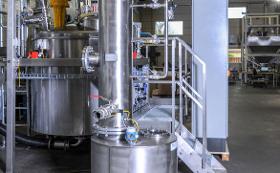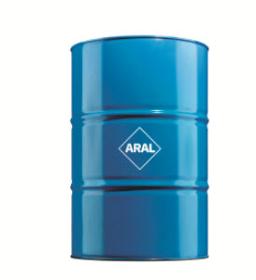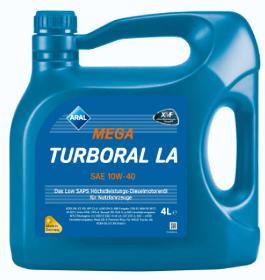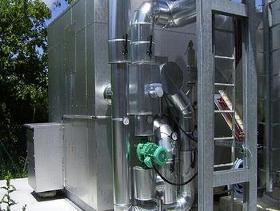- europages
- >
- COMPANIES - SUPPLIERS - SERVICE PROVIDERS
- >
- exhaust gas systems
Results for
Exhaust gas systems - Import export

THERMA THERMOFÜHLER GMBH
Germany
The sheathing thermocouple from Therma is perfect for reliable and fail-safe temperature measurement in the exhaust gas system. It excels with its simple structure. By selecting double-walled sheathing material made of Nimonic75, this thermocouple is well prepared for corrosion influences and vibrations along with extremely high temperatures. Furthermore, assembly with a compression-type fitting lets you decide the installation length onsite. Sheathed thermocouples NiCr-Ni, Type “K”, Class 1
Request for a quote
IFA TECHNOLOGY GMBH
Germany
IFA Technology designs and implements the right exhaust air purification system for every pollutant. Exhaust air scrubbers are used for exhaust air purification of exhaust air streams from industrial processes loaded with harmful gas. These exhaust air purification systems work according to the principle of absorption and separate pollutants present in the exhaust air in the liquid phase. Depending on the substance, pollutants are either physically dissolved or chemically bound by the addition of lye and/or acid. We consider your individual requirements and build customised exhaust air purification systems for you. With the companies Wessel-Umwelttechnik and Airprotech we have competent partners within the Deurotech Group at our side to develop special and complex systems for exhaust air purification.
Request for a quote
DIERMEIER ENERGIE GMBH
Germany
Aral MegaTurboral LA 10W-40 is based on the strict requirements of the latest generation of Euro 4.5 and 6 engines with exhaust aftertreatment systems, for which a lubricant with a reduced content of sulfate ash, phosphorus and sulfur (Low SAPS) is prescribed, to ensure safe operation. The formulation enables a maximum reduction in exhaust emissions to comply with Euro 4.5 and 6 limits. Application Aral MegaTurboral LA 10W-40 was developed with special consideration of the requirement profiles for exhaust gas aftertreatment systems, especially when using diesel particle filters in commercial vehicles. Advantages Low SAPS technology optimizes the efficiency of the exhaust gas aftertreatment and thus ensures safe compliance with the legally prescribed Euro 4.5 and 6 limit values. Synthesis technology enables oil change intervals to be extended while taking into account the manufacturer's instructions and reduces maintenance costs and the resulting downtime.
Request for a quote
DIERMEIER ENERGIE GMBH
Germany
Aral MegaTurboral LA 10W-40 is based on the strict requirements of the latest generation of Euro 4.5 and 6 engines with exhaust aftertreatment systems, for which a lubricant with a reduced content of sulfate ash, phosphorus and sulfur (Low SAPS) is prescribed, to ensure safe operation. The formulation enables a maximum reduction in exhaust emissions to comply with Euro 4.5 and 6 limits. Application Aral MegaTurboral LA 10W-40 was developed with special consideration of the requirement profiles for exhaust gas aftertreatment systems, especially when using diesel particle filters in commercial vehicles. Advantages Low SAPS technology optimizes the efficiency of the exhaust gas aftertreatment and thus ensures safe compliance with the legally prescribed Euro 4.5 and 6 limit values. Synthesis technology enables oil change intervals to be extended while taking into account the manufacturer's instructions and reduces maintenance costs and the resulting downtime. Minimized wear - protects
Request for a quote
DIERMEIER ENERGIE GMBH
Germany
Aral MegaTurboral LA 10W-40 is based on the strict requirements of the latest generation of Euro 4.5 and 6 engines with exhaust aftertreatment systems, for which a lubricant with a reduced content of sulfate ash, phosphorus and sulfur (Low SAPS) is prescribed, to ensure safe operation. The formulation enables a maximum reduction in exhaust emissions to comply with Euro 4.5 and 6 limits. Application Aral MegaTurboral LA 10W-40 was developed with special consideration of the requirement profiles for exhaust gas aftertreatment systems, especially when using diesel particle filters in commercial vehicles. Advantages Low SAPS technology optimizes the efficiency of the exhaust gas aftertreatment and thus ensures safe compliance with the legally prescribed Euro 4.5 and 6 limit values. Synthesis technology enables oil change intervals to be extended while taking into account the manufacturer's instructions and reduces maintenance costs and the resulting downtime.
Request for a quoteDo you sell or make similar products?
Sign up to europages and have your products listed

ERC ADDITIV GMBH
Germany
ERC Guard Bio Thermic is the first TÜV tested high-performance additive for heating oils with up to 20% bio-components. With organic combustion enhancers, can be used in all DIN heating oils. The Effect ERC Guard Bio Thermic is the first high-performance additive certified by TÜV NORD for low-sulphur heating oil with a bio share of up to 20%, combination with high sulphur heating oil (1.000 ppm sulphur) is also problem-free. The comparative endurance test of TÜV NORD demonstrated the spectacular effect of ERC Guard Bio Thermic on the low-sulphur heating oil used in the test. There were no ageing products on the tank bottom and no corrosion. The Result ERC Guard Bio Thermic assures stable heating oil flow through the nozzle. Even after a burner operating time of 1,510 hours, there was no increase of exhaust gas losses. The heating system with heating oil without additives operating in parallel was then measured as an emissions 'polluter'.
Request for a quote
VENJAKOB MASCHINENBAU GMBH & CO KG
Germany
For its exhaust gas purification systems, Venjakob Umwelttechnik offers heat exchanger systems for utilizing the waste heat. These are characterized by: We build complete heat exchanger systems for heating water, steam, air, and gas or heat transfer fluid. The residual or excess energy contained in the clean gases of the Venjakob exhaust air cleaning systems often has sufficient potential to effectively support the actual production process, the building heater or other energy consumers. Whether as an individual system for heat transfer fluid, warm and hot water, hot air, and vapor, or combined as a downstream system solution for an exhaust air purification system - the planning, construction and production of the plant are done on an individual basis.
Request for a quote
VENJAKOB MASCHINENBAU GMBH & CO KG
Germany
The adsorption system (AD) from Venjakob Umwelttechnik serves to concentrate exhaust air flows containing low concentrations of pollutants, and is particularly suitable for removing extremely low to medium concentrations of solvent-based pollutants (VOCs). This machine is characterized by: During the adsorption process, the pollutants are physically retained on the surface of a solid material (e.g. activated carbon, zeolite). The pollutants are then removed /desorbed from the zeolite by means of a small, hot stream of air. Afterwards, the flow of exhaust air from the desorption process is cleaned by means of an exhaust air cleaning system (TI, RTO, CTO). By reducing the volume and by increasing the concentration, the operating costs of the downstream exhaust gas purification system can be kept very low and make autothermal operation possible among other things The rotor is mounted vertically on a shaft with bearing and rotated slowly in the air flow. During rotation, the adsorption and desorption take place simultaneously in separate chambers with cooling on a hydrophobic (water-repellent) incombustible zeolite material. For tough applications, versions can be provided with a removable wear layer and / or higher temperatures of up to 300 ° C for desorption. Two containers are operated alternately. While one of the containers is adsorbing, the other container can be desorbed The adsorption process can be used for smoothing pollutant concentration peaks. If pollutant peaks occur during a process that could lead to a potentially explosive mixture (> 25% lower explosion limit), they cannot be introduced into an incinerator. However, the pollutants may be temporarily stored in an adsorber and then be released during the desorption phase. In certain situations, the installation of an additional fixed bed adsorber (molecular sieve) may further enhance the process (safety, operating costs).
Request for a quoteResults for
Exhaust gas systems - Import exportNumber of results
10 ProductsCountries
Company type
